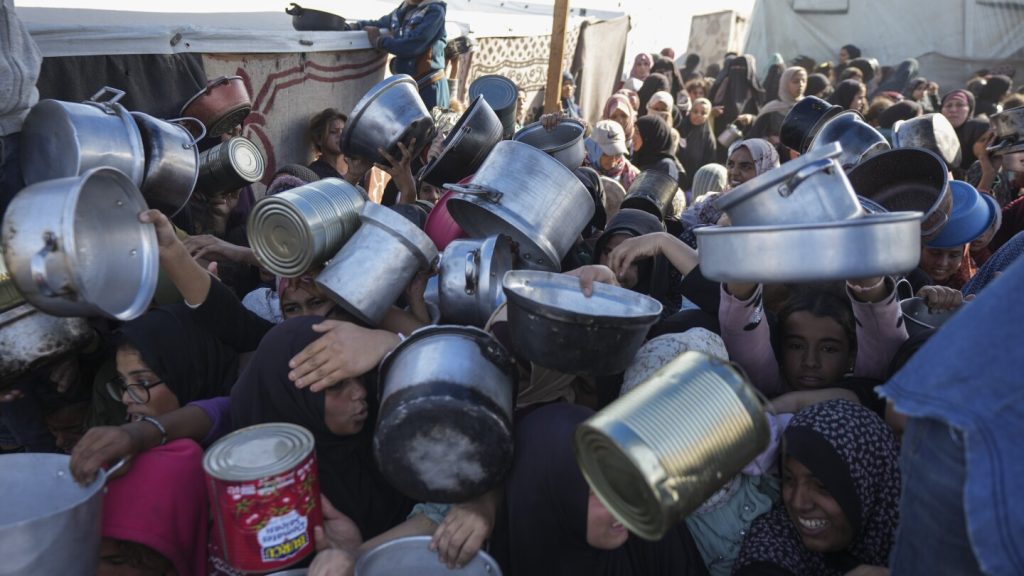A recent report from a lead organization monitoring food crises around the world warned of an imminent famine in north Gaza due to Israel’s “near-total blockade.” However, the report was withdrawn after the U.S. requested its retraction, following criticism from the U.S. ambassador to Israel. This move has raised concerns about political interference in a monitoring system meant to provide unbiased and data-driven analysis of hunger crises.
The dispute between the U.S. and the famine-monitoring organization has highlighted the challenges of assessing famine in northern Gaza, a largely isolated area where thousands have fled due to intensified Israeli military crackdowns. The report warned that unless Israel changes its policy, the number of deaths from starvation in north Gaza could reach alarming levels between January and March. The internationally recognized threshold for declaring a famine is two or more deaths per day per 10,000 people.
The U.S. ambassador to Israel, Jacob Lew, criticized the report as inaccurate and irresponsible, arguing that the findings did not properly account for rapidly changing circumstances in north Gaza. USAID, which funds the monitoring group, confirmed that it had asked for the report’s withdrawal due to discrepancies in population estimates and other data. Aid and human rights officials have raised concerns about political considerations interfering with the work of the monitoring agency, which is meant to provide neutral assessments of hunger crises.
Israel has denied allegations of targeting civilians in its 15-month war with Hamas militants and insists that it is focused on combating the militant group. The government has accused the monitoring organization of spreading lies and welcomed the U.S. ambassador’s challenge of the famine warning. Meanwhile, international officials have repeatedly warned of the imminent risk of malnutrition and deaths from starvation in Gaza, with Israel’s restrictions on aid exacerbating the situation.
The Biden administration has faced criticism for its handling of the crisis in Gaza, with some accusing it of prioritizing political considerations over addressing the urgent humanitarian needs of the population. The U.S. has provided significant military support to Israel during the conflict but has also pressured the government to allow more access to aid deliveries in Gaza. The administration’s reluctance to take stronger action has drawn criticism from humanitarian organizations and some lawmakers.
The situation in Gaza remains dire, with ongoing combat, restrictions on aid delivery, and a lack of access to basic necessities contributing to a worsening humanitarian crisis. As the conflict between Israel and Hamas continues, the need for international assistance to address the hunger and suffering in Gaza remains a pressing concern. The U.S. government’s role in addressing the crisis and advocating for the rights of Palestinians will continue to be closely scrutinized in the coming months.














